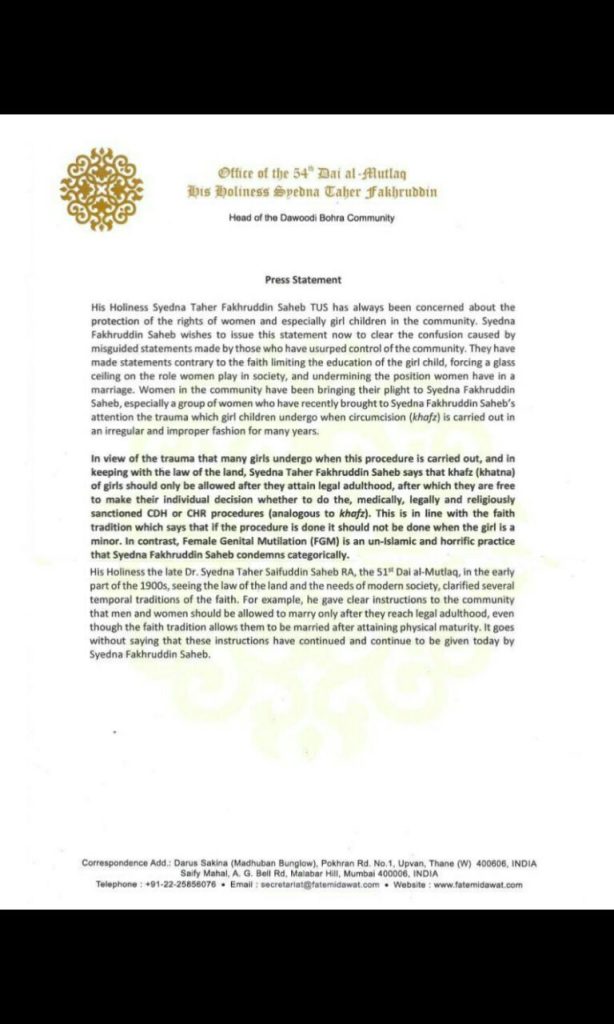One Woman’s Reactions to Bakersfield’s Resolution against Khatna (FGC)
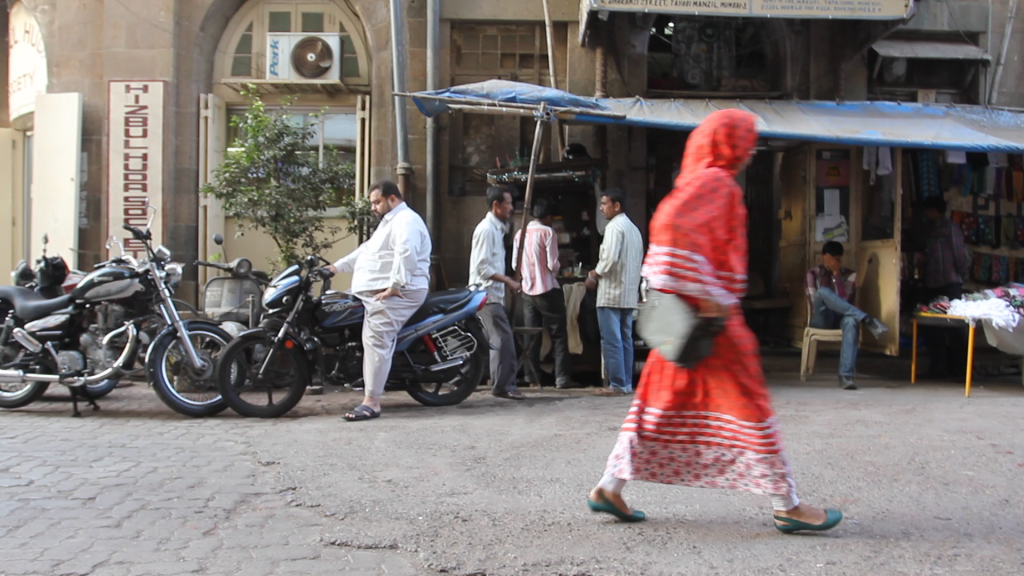
By: Anonymous Country: United States Age: In her 30s When the public resolution on khatna (female circumcision) from the Bakersfield Jamaat (community) was released shortly after the Sydney case, an old weight was lifted from me. There. They’ve finally said it. Do not do this. As I followed the events leading to the trial and prosecution in Sydney, I could only hope an official mandate against khatna would make its way to the U.S. Jamaats and to Bakersfield, where my own khatna was performed. It did. Thanks to the brave whistleblowers in Sydney and the upstanding efforts of the Sahiyo women, we’ve seen the snowball of these resolutions from Dawoodi Bohra communities all over the world. The victory however, was short-lived for me as I’m sure it was for many others working to educate people about this practice. To no one’s surprise, statements from the central dawaat (clergy), are suggestive of these resolutions being just a way to protect our communities legally—to prevent another Sydney, to prevent another Amil from going to jail, and lessening the impact of these letters. If you read the resolutions carefully, the focus was never about taking ownership, but to use the state or country of residence as the scapegoat for denouncing the practice. Even worse, our sisters in India and other countries where there are no such laws can still be subject to this practice. We need a resolution not from the Jamaats, but from the head of the community. We do not do this. — Following the discovery of my own cutting many years ago, I remember attending a women’s function at home and anonymously submitting a question as to why we practiced khatna. The question was deferred by the M.C. to a doctor in the Jamaat who stood with authority and explained how it was essentially a matter of “cleanliness”—nothing more and nothing less. There was no mention of sex or sexuality at all. I looked around at all of the women nodding their heads in agreement, some smiling even, so accepting. I was infuriated by her response, knowing otherwise, and wanted to scream at the top of my lungs in protest. I didn’t because I knew it was futile. How could I go up against an official voice and a women’s doctor? How could I blame the participants for their naiveté, many of whom were her trusting patients? For years I have been deeply troubled by this dichotomy. This was the one and only time that I had ever heard anyone in my community even address this practice aloud. To my knowledge, it was never brought up in a public forum like this again, although by this time my attendance at such functions began to dwindle. Reflecting back on this particular event and similar others growing up in this community, I am at times in disbelief that we are having this conversation. More, that we are forcing this conversation, and people are listening now. I often felt hopeless that there was little official action that could or would be taken on such an underground practice because so few people were willing to speak up or speak out. Many of my family and friends were unwilling to even talk with me about it in private. — Am I confident the Dawoodi Bohras of Bakersfield and the surrounding cities who come to Bakersfield for khatna will abide by the resolution? Unfortunately, no. There are some people who will continue to drive the practice even further underground. The small victory here is that these resolutions by local Jamaats, have created the necessary dialogue for community members to be aware this practice is even taking place, and to give families the option to opt-out in the name of the law. When my khatna was performed, there was no state law against female genital mutilation and no “opt-out” from the Jamaat. My family had no understanding and no choice–the alternative being unrelenting pressure to perform the cutting or social ostracism. To the families with young girls in Bakersfield and throughout the U.S. – please listen. This is your chance to end this practice once and for all. A voiceless seven-year old will grow up, and ask the same questions I am asking now. Why did this happen to me? Yes the legal consequences are certainly not worth the risk, but more importantly, the physical and psychological consequences that can result from this trauma are not worth the risk. Stand up, and stand with us.
Our campaign will continue: Sahiyo’s statement in response to Syedna’s official stand on khatna
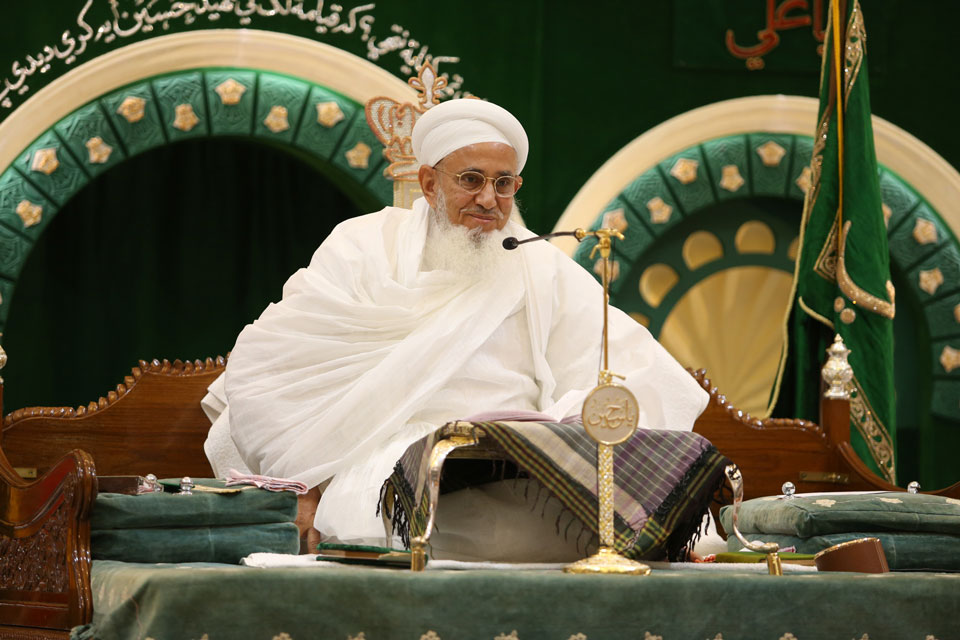
On June 6, 2016, Syedna Mufaddal Saifuddin officially released a public statement to the press clarifying his stance on the issue of female genital cutting (khatna/khafz) in the Dawoodi Bohra community. Since February, several Bohra jamaats in countries like Australia, UK, USA and Canada – where female genital cutting is illegal – have issued resolution letters asking Bohras to follow the laws of the land and stop practicing khafz. According to Syedna’s statement, these resolution letters are still valid despite his sermon in Mumbai that seemed to indicate the contrary. (Read Sahiyo’s response to that sermon here.) However, Syedna’s statement also categorically promotes khafz for Bohras in general: “Male and female circumcision (called khatna and khafz respectively) are religious rites that have been practiced by Dawoodi Bohras throughout their history. Religious books, written over a thousand years ago, specify the requirements for both males and females as acts of religious purity. This religious obligation finds an echo in many other Muslim communities, particularly those following the Sunni Shafi’i school of thought.” Here is Sahiyo’s official statement in response to Syedna’s stand on khatna: “We thank Syedna Mufaddal Saifuddin for officially and publicly speaking on the issue of female genital cutting, since there has been so much silence and confusion on this issue for so long. We are pleased to know that the resolutions issued in several cities around the world, asking Bohra residents to stop practicing khafz, still stand as valid. While we are pleased that the resolutions will continue to be issued in countries where female genital cutting is illegal, we are saddened to see that the Syedna’s statement clearly promotes the practice of khafz in countries where such laws are yet to be passed. We are one community, and we are disappointed that Bohra girls in some parts of the world are still expected to be cut. We maintain that khafz is a form of gender violence, an unnecessary ritual that has left many Bohra girls and women with life-long psychological and physical scars. The World Health Organisation defines female genital cutting as ‘all procedures that involve partial or total removal of the external female genitalia, or other injury to the female genital organs for non-medical reasons’, and khafz clearly falls within that definition. Several conventions of the United Nations, including CEDAW, UNFPA, UNDP and Unicef have declared FGC to be a violation of human and child rights. Countries like India, even though they may not have a specific law against FGC, are signatories to these conventions. We will continue our campaign to bring an end to this practice of khafz within the community. We urge our leader to engage with Bohra women who have been negatively impacted by this practice and pay heed to our voices.”
Discussing FGC During International Women’s Day event in Pune
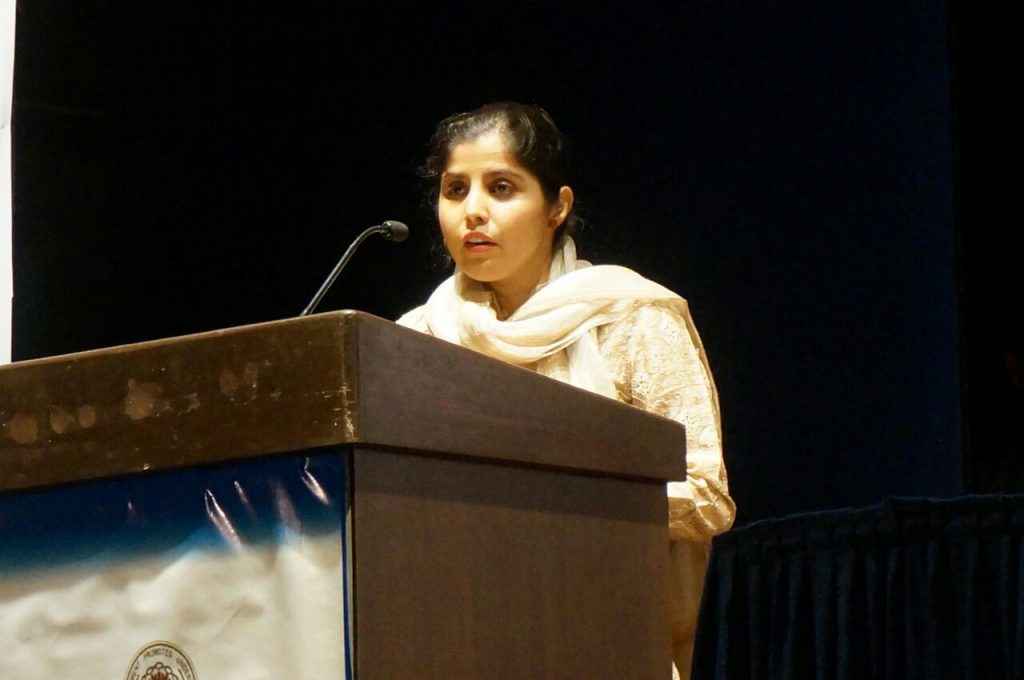
Boston Jammaat Sends Letter Against Khatna/FGC to Members
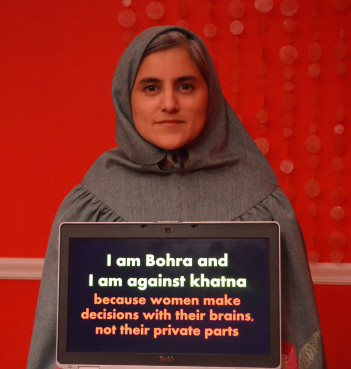
Joint statement on Syedna Taher Fakhruddin’s stand against khatna
